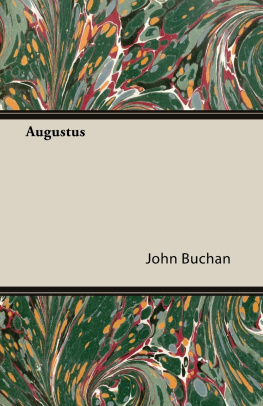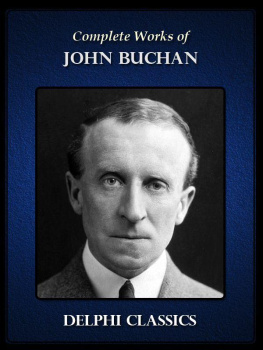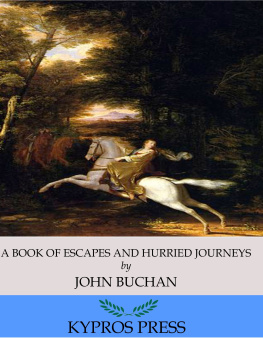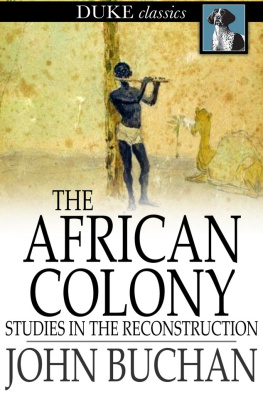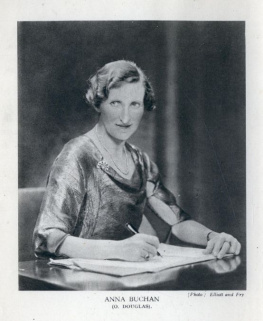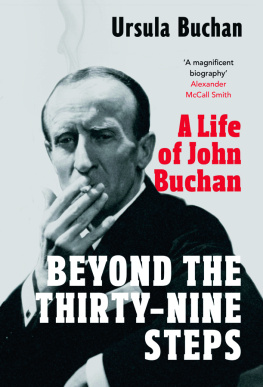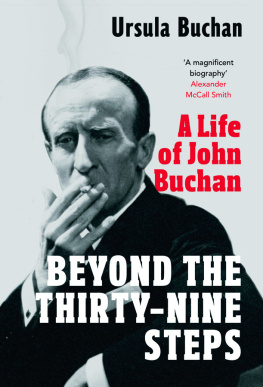John Buchan - The Three Hostages
Here you can read online John Buchan - The Three Hostages full text of the book (entire story) in english for free. Download pdf and epub, get meaning, cover and reviews about this ebook. genre: Art / Prose. Description of the work, (preface) as well as reviews are available. Best literature library LitArk.com created for fans of good reading and offers a wide selection of genres:
Romance novel
Science fiction
Adventure
Detective
Science
History
Home and family
Prose
Art
Politics
Computer
Non-fiction
Religion
Business
Children
Humor
Choose a favorite category and find really read worthwhile books. Enjoy immersion in the world of imagination, feel the emotions of the characters or learn something new for yourself, make an fascinating discovery.
- Book:The Three Hostages
- Author:
- Genre:
- Rating:3 / 5
- Favourites:Add to favourites
- Your mark:
- 60
- 1
- 2
- 3
- 4
- 5
The Three Hostages: summary, description and annotation
We offer to read an annotation, description, summary or preface (depends on what the author of the book "The Three Hostages" wrote himself). If you haven't found the necessary information about the book — write in the comments, we will try to find it.
The Three Hostages — read online for free the complete book (whole text) full work
Below is the text of the book, divided by pages. System saving the place of the last page read, allows you to conveniently read the book "The Three Hostages" online for free, without having to search again every time where you left off. Put a bookmark, and you can go to the page where you finished reading at any time.
Font size:
Interval:
Bookmark:
The Three Hostages
by John Buchan
Dedication
To a Young Gentleman of Eton College
Honoured Sir,
On your last birthday a well-meaning godfather presented you with a volume of mine, since you had been heard on occasion to express approval of my works. The book dealt with a somewhat arid branch of historical research, and it did not please you. You wrote to me, I remember, complaining that I had 'let you down', and summoning me, as I valued your respect, to 'pull myself together'. In particular you demanded to hear more of the doings of Richard Hannay, a gentleman for whom you professed a liking. I, too, have a liking for Sir Richard, and when I met him the other day (he is now a country neighbour) I observed that his left hand had been considerably mauled, an injury which I knew bad not been due to the war. He was so good as to tell me the tale of an unpleasant business in which he had. recently been engaged, and to give me permission to retell it for your benefit. Sir Richard took a modest pride in the affair, because from first to last it had been a pure contest of wits, without recourse to those more obvious methods of strife with which he is familiar. So I herewith present it to you, in the hope that in the eyes of you and your friends it may atone for certain other writings of mine with which you have been afflicted by those in authority.
J.B.
June 1924
Contents
I Doctor Greenslade Theorizes
II I Hear of the Three Hostages
III Researches in the Subconscious
IV I Make the Acquaintance of a Popular Man
V The Thursday Club
VI The House in Gospel Oak
VII Some Experiences of a Disciple
VIII The Blind Spinner
IX I am Introduced to Strong Magic
X Confidences at a Wayside Inn
XI How a German Engineer Found Strange Fishing
XII I Return to Servitude
XIII I Visit the Fields of Eden
XIV Sir Archibald Roylance Puts His Foot In It
XV How a French Nobleman Discovered Fear
XVI Our Time is Narrowed
XVII The District-Visitor in Palmyra Square
XVIII The Night of the First of June
XIX The Night of the First of June later
XX Machray
XXI How I Stalked Wilder Game than Deer
Chapter I
Doctor Greenslade Theorizes
THAT evening, I remember, as I came up through the Mill Meadow, I was feeling peculiarly happy and contented. It was still mid-March, one of those spring days when noon is like May, and only the cold pearly haze at sunset warns a man that he is not done with winter. The season was absurdly easy, for the black-thorn was in flower and the hedge roots were full of primroses. The partridges were paired, the rooks were well on with their nests, and the meadows were full of shimmering grey flocks of fieldfares on their way north. I put up half a dozen snipe on the boggy edge of the stream, and in the bracken in Stern Wood I thought I saw a woodcock, and hoped that the birds might nest with us this year, as they used to do long ago. It was jolly to see the world coming to life again, and to remember that this patch of England was my own, and all these wild things, so to speak, members of my little household.
As I say, I was in a very contented mood, for I had found something I had longed for all my days. I had bought Fosse Manor just after the War as a wedding present for Mary, and for two and a half years we had been settled there. My son, Peter John, was rising fifteen months, a thoughtful infant, as healthy as a young colt and as comic as a terrier puppy. Even Mary's anxious eye could scarcely detect in him any symptoms of decline. But the place wanted a lot of looking to, for it had run wild during the War, and the woods had to be thinned, gates and fences repaired, new drains laid, a ram put in to supplement the wells, a heap of thatching to be done, and the garden borders to be brought back to cultivation. I had got through the worst of it, and as I came out of the Home Wood on to the lower lawns and saw the old stone gables that the monks had built, I felt that I was anchored at last in the pleasantest kind of harbour.
There was a pile of letters on the table in the hall, but I let them be, for I was not in the mood for any communication with the outer world. As I was having a hot bath Mary kept giving me the news through her bedroom door. Peter John had been raising Cain over a first tooth; the new shorthorn cow was drying off; old George Whaddon had got his grand-daughter back from service; there was a new brood of runner-ducks; there was a missel-thrush building in the box hedge by the lake. A chronicle of small beer, you will say, but I was by a long chalk more interested in it than in what might be happening in Parliament or Russia or the Hindu Kush. The fact is I was becoming such a mossback that I had almost stopped reading the papers. Many a day The Times would remain unopened, for Mary never looked at anything but the first page to see who was dead or married. Not that I didn't read a lot, for I used to spend my evenings digging into county history, and learning all I could about the old fellows who had been my predecessors. I liked to think that I lived in a place that had been continuously inhabited for a thousand years. Cavalier and Roundhead had ought over the countryside, and I was becoming a considerable authority on their tiny battles. That was about the only interest I had left in soldiering.
As we went downstairs, I remember we stopped to look out of the long staircase window which showed a segment of lawn, a corner of the lake, and through a gap in the woods a vista of green downland. Mary squeezed my arm. 'What a blessed country,' she said. 'Dick, did you ever dream of such peace? We're lucky, lucky people.'
Then suddenly her face changed in that way she has and grew very grave. I felt a little shiver run along her arm.
'It's too good and beloved to last,' she whispered. 'Sometimes I am afraid.'
'Nonsense,' I laughed. 'What's going to upset it? I don't believe in being afraid of happiness.' I knew very well, of course, that Mary couldn't be afraid of anything.
She laughed too. 'All the same I've got what the Greeks called aidos. You don't know what that means, you old savage. It means that you feel you must walk humbly and delicately to propitiate the Fates. I wish I knew how.'
She walked too delicately, for she missed the last step and our descent ended in an undignified shuffle right into the arms of Dr Greenslade.
Paddock I had got Paddock back after the War, and he was now my butler was helping the doctor out of his ulster, and I saw by the satisfied look on the latter's face that he was through with his day's work and meant to stay to dinner. Here I had better introduce Tom Greenslade, for of all my recent acquaintances he was the one I had most taken to. He was a long lean fellow with a stoop in his back from bending over the handles of motor-bicycles, with reddish hair, and the greeny-blue eyes and freckled skin that often accompany that kind of hair. From his high cheek bones and his colouring you would have set him down as a Scotsman, but as a matter of fact he came from Devonshire Exmoor, I think, though he had been so much about the world that he had almost forgotten where he was raised. I have travelled a bit, but nothing to Greenslade. He had started as a doctor in a whaling ship. Then he had been in the South African War and afterwards a temporary magistrate up Lydenburg way. He soon tired of that, and was for a long spell in Uganda and German East, where he became rather a swell on tropical diseases, and nearly perished through experimenting on himself with fancy inoculations. Then he was in South America, where he had a good practice in Valparaiso, and then in the Malay States, where he made a bit of money in the rubber boom. There was a gap of three years after that when he was wandering about Central Asia, partly with a fellow called Duckett exploring Northern Mongolia, and partly in Chinese Tibet hunting for new flowers, for he was mad about botany. He came home in the summer of 1914, meaning to do some laboratory research work, but the War swept him up and he went to France as M.O. of a territorial battalion. He got wounded of course, and after a spell in hospital went out to Mesopotamia, where he stayed till the Christmas of 1918, sweating hard at his job but managing to tumble into a lot of varied adventures, for he was at Baku with Dunsterville and got as far as Tashkent, where the Bolsheviks shut him up for a fortnight in a bathhouse. During the War he had every kind of sickness, for he missed no experience, but nothing seemed to damage permanently his whipcord physique. He told me that his heart and lungs and blood pressure were as good as a lad's of twenty-one, though by this time he was on the wrong side of forty.
Next pageFont size:
Interval:
Bookmark:
Similar books «The Three Hostages»
Look at similar books to The Three Hostages. We have selected literature similar in name and meaning in the hope of providing readers with more options to find new, interesting, not yet read works.
Discussion, reviews of the book The Three Hostages and just readers' own opinions. Leave your comments, write what you think about the work, its meaning or the main characters. Specify what exactly you liked and what you didn't like, and why you think so.



